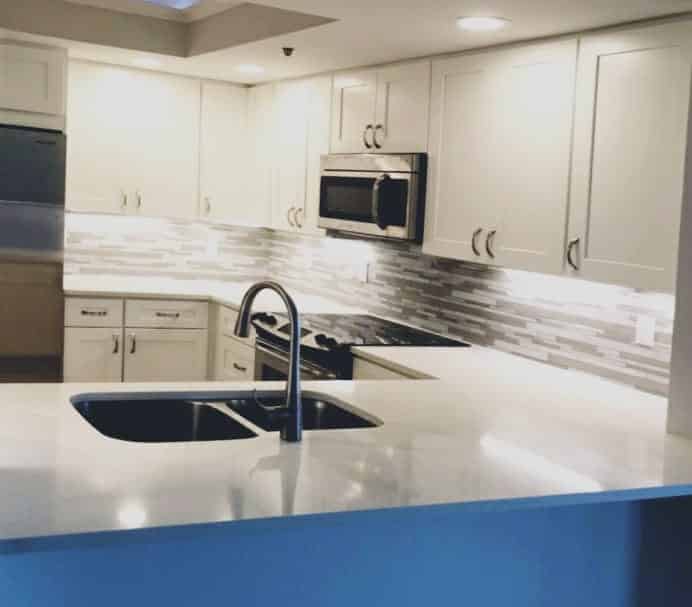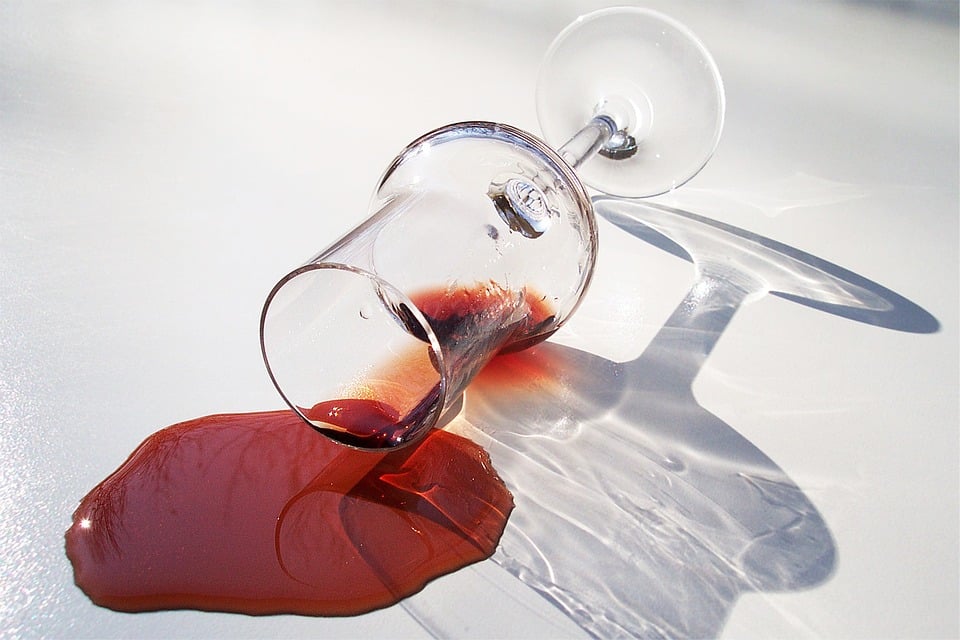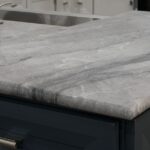We know you heard a lot about quartz, and you probably learned that it is extremely stain-resistant. But what does it mean to be resistant in the first place? Why is it not stain-free? Does quartz stain? Isn’t it nonporous?
I know why you are here. You probably saw a spot of a different color on your beautiful Quartz countertop and are very worried. Calm down, we are here to tell you that quartz does stain, but not easily, there is no need to freak out.
We will tell you all you need to know about why and how can quartz stain. And, on top of that, we will show you how to take care of those stains and how to prevent more from happening!

Why does quartz stain?
Isn’t quartz supposed to be more resistant to stains than Marble and other natural stones? It is. That’s true. However, to understand why quartz stains and how it happens, we need to understand why it is known as a stain-resistant stone.
Quartz is an engineered stone. Its composition is of 90-95% quartz crystals, the rest is made out of resins that bind the particles together. These resins are the key to why quartz outstands most natural stones in some aspects. Unfortunately, those resins are also the reason they can stain.
The resin present in Quartz countertops helps it with its non-porous aspect, preventing mold, dirt and food to get between the grains. However the resin in itself can have some chemical reactions with some other products.
You see, natural stones stain because they are porous. Thus, liquids, foods and dirt can penetrate them and get stuck there. For example, even water can stain marble, creating mold in places we can’t reach. For that reason, we tend to seal natural stones from time to time.
Now, quartz is more resistant to stains and requires no sealing, because the resins create a virtually non-porous surface. Therefore, there is no penetration of liquids.
Although Quartz won’t ever get stains like other natural stones, the resin can be a bit problematic when cleaning. As we mentioned, these resins can react to chemicals, such as alkaline cleaners, high pH detergents, or specific kinds of acids. All that results in descoloration, creating white or bleached stains.
But not only cleaning supplies can make that happen, so keep reading to not let that happen!
Chemical stains and Dried-on stains on Quartz
Most things we deal with on our daily life has chemicals in them. From processed foods, nail polish, wax and even makeup! But only spilling them over you countertop might not be enough to stain it, so you can relax!
The problem is if you leave them to dry out there. These substances can get stuck to the surface and be hard to clean. However, once they dry out, they will definetly lead to chemical stains.
This type of stain is also unrelated to the porosity of the surface. So as you can see, even though quartz won’t allow penetrating liquids, it still susceptible to chemical stains.
Quartz stain: How to prevent it
Yes, prevention is still the best medicine. Moreover, when it comes to quartz, as you’re gonna see in the next section of our article, those stains are really hard to remove, but not always impossible.
Prevention, however, is not a big deal at all.
Now, there is no reason to worry about sealing. Quartz is naturally sealed and has a non-porous surface. So, you don’t need to seal it at all!
The first barrier of prevention is watching which chemicals you use on your countertops. You should use only pH neutral cleaners, and if possible, those that are specific to quartz. If you are in doubt, don’t hesitate to ask. Your manufacturer will surely have some tips on what to use!
Which chemicals can stain quartz?
Bleach is often the problem with quartz, so keep it neutral! Just keep an eye out for what ingredients are in your cleaning products.
A chemical that touches the countertop and normally goes unnoticed is the one you use to clean your cooktop. To get those crusty bits, we tend to use harsh chemicals clean it with less effort. Try other methods of cleaning or just be sure the product doesn’t come in contact with the countertop.
Other common perpetrators are:
- Lemon juice
- Vinegar
- Wine
- Soda
- Orange juices
If spills happen, wipe them out and clean them as soon as possible. That brings us to the second barrier of prevention.
Prevent direct contact with the quartz surface at all times. Be cautious with your countertops, don’t ever leave them wet, use cutting boards and pot holders to protect them. Direct heat or sunlight can discolour most surfaces, so be careful!
Taking good care of your Quartz, they will continue to make stories with you for a lifetime!
Okay, now how to get that stain that is bothering you off of your beautiful countertop?

How to remove stains from quartz countertops
If we’re talking about a dried-on stain or a chemical stain that’s very recent, it’s possible it will come with some of the strategies we will share here. So, it’s always worth trying!
The first thing you should try is to use a non-abrasive cleaning pad and some quartz-specific cleaner. You can also try it out with other pH-neutral cleaners.
If you notice it’s a dried-on stain, you need to go rougher. Try scraping with a plastic knife to not harm your surface, or use a straight razor blade very carefully.
If you are concerned about making it worse, don’t overdo it, call in the professionals to take a look.
What if it doesn’t come out?
If my quartz stains, is restoration possible?
Natural stones are famous for being able to go back to new with polishing. And this can happen to Quartz too!
There are some types of polishiment, but the Hard polishing is the way to go with Quartz. However, this is not a DIY project!
It is best to trust a professional and not risk losing your beautifull Quartz Countertop. Achieving the original factory polish of your quartz surfaces is a long and complicated process. So let a specialist do it for you!
For all your countertop related needs, or for choosing the best quartz surface for your house, you can count on Eagle Stones.
Select the best slab and clarify all your doubts while you walk through our stone yard, guided by one of our experts. We are waiting for you.
FAQ
No, it does not. Due to its fabrication process, quartz comes with a form of “natural sealing”, so it does not need to be sealed.
No, that is never recommended. While being extremely resistant, both to stain and knife cuts, quartz can still be affected by chemical stains, so it’s best to avoid it. Always use a cutting board.
Your everyday neutral dish soap can do the job. Simply wet a cloth with warm water, add a pinch of dish soap, and you already have a good product to clean it.
None, actually. Heavy chemical products can damage your quartz more than help it. Always go for ph neutral products. In the worst cases, you can go for a quartz-specific cleaner product and hope the stain in question is not beyond repair.



